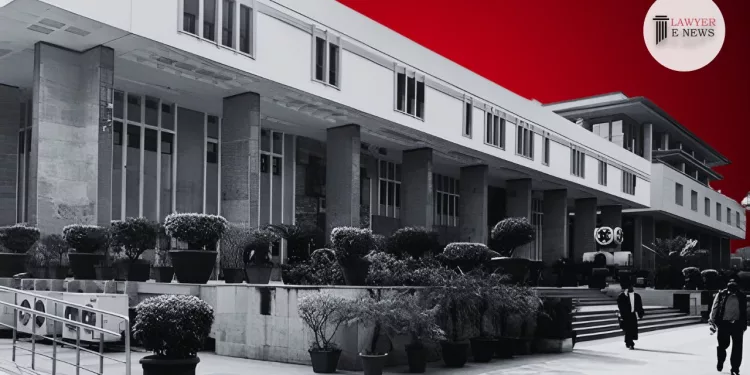Delhi High Court Upholds Injunction Against Sale of Disputed Property: Protecting Rights During Litigation Essential

In a significant ruling on property rights and the scope of injunctions, the Delhi High Court yesterday dismissed an appeal against a temporary injunction restraining the sale of a disputed property. The Bench, comprising Hon’ble Mr. Justice Tushar Rao Gedela and Hon’ble Mr. Justice Ravinder Dudeja, emphasized the importance of maintaining the status quo in property disputes during ongoing litigation.
The case, “Ramesh Kumar Sharma And Anr vs Usha Nindawat”, centered around a dispute over a property in Ashok Vihar, Delhi, following the death of the property owner. The appellants, Ramesh Kumar Sharma and another party, were prevented from selling the property by an earlier court order, which they challenged in the High Court.
In their judgment, the Justices observed, “The primary object of the grant of temporary injunction is to maintain status quo, protecting the suit property till the adjudication of the rights of the litigating parties.” This principle was crucial in their decision to uphold the lower court’s order.
The case had its roots in a contention that the appellants had acquired the property through a sale deed, allegedly based on a fraudulently executed relinquishment deed. The respondent, Usha Nindawat, claimed her lawful share of the property, leading to the original suit for partition, declaration, and permanent injunction.
The court’s decision further clarified the application of legal principles in granting injunctions. “The exercise of discretion by the trial court in deciding an application for temporary injunction will not be interfered with by the appellate court except where the discretion has been shown to have been exercised arbitrarily, capriciously or perversely,” the Bench noted.
The legal fraternity sees this judgment as a reaffirmation of the courts’ approach to protecting property rights in the face of litigation and disputes. The Bench’s decision and its rationale are expected to have a significant impact on similar cases in the future.
The appeal and the associated application were dismissed, leaving the temporary injunction in place. The judgment was delivered on January 5, 2024, with the legal representatives for both parties presenting their arguments extensively.
Date of Decision:05 January 2024
RAMESH KUMAR SHARMA AND ANR VS USHA NINDAWAT





